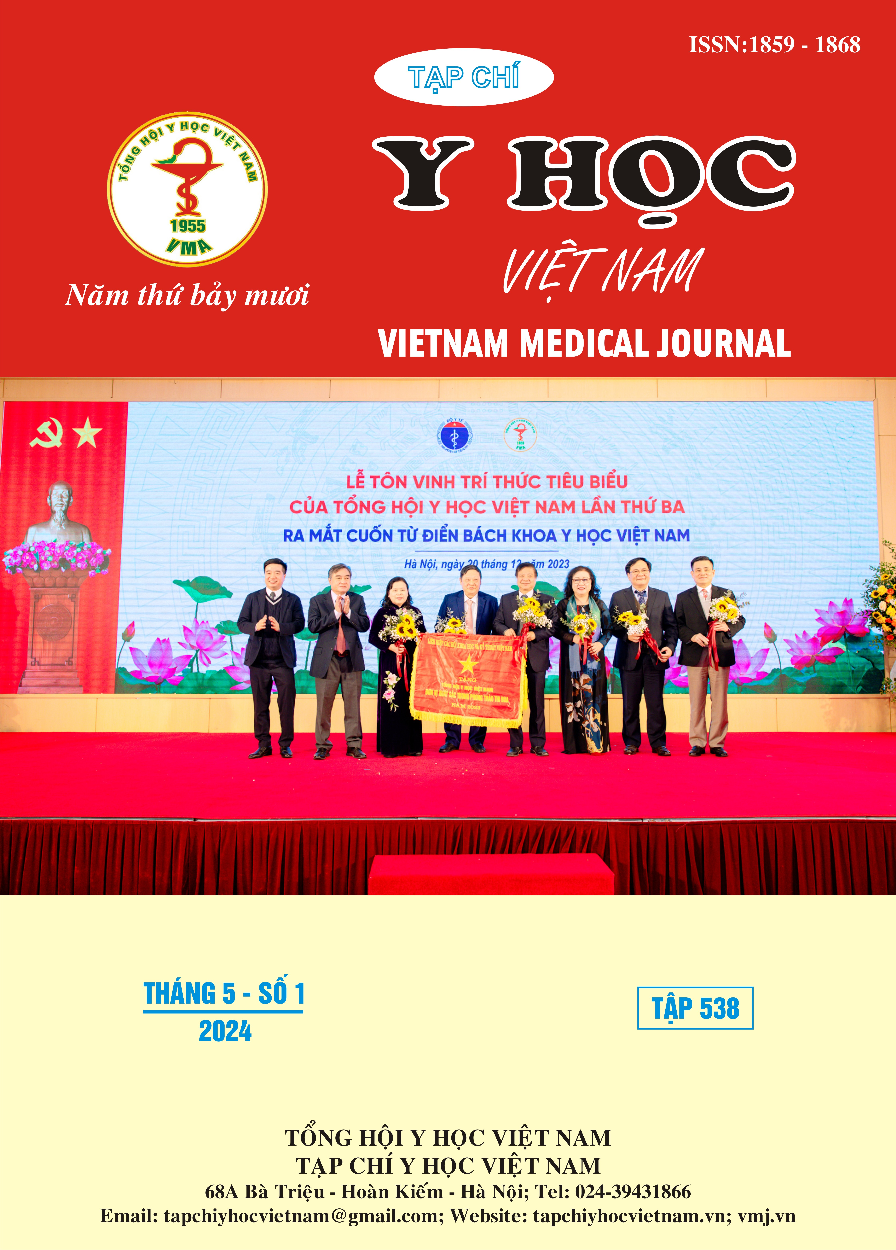EFFECTIVE METHOD OF TRAINING PRONUNCIATION ERRORS COMBINED WITH ELECTROMAGNETIC REHABILITATION OF LANGUAGE FUNCTION IN CHILDREN WITH AUTISTIC SPECTRUM DISORDERS
Main Article Content
Abstract
Objective: Evaluate the effectiveness of language rehabilitation treatment in children with autism spectrum disorder using pronunciation error correction method combined with electroacupuncture. Methods: Clinical intervention study comparing before and after treatment, with control on 60 children with autism spectrum disorder divided into two research groups and control group from August 2023 to October 2023 at the hospital. Central Institute of Acupuncture. Using the Zimmerman scale to assess communication function and the CARS scale to assess the level of autism spectrum disorder. Results: According to the Zimmerman scale after 2 treatment sessions in the study group, 66.7% had good treatment effectiveness compared to 33.4% in the control group (p<0.05). CARS score decreased in both study groups, however the study group had significantly higher recovery efficiency than the control group, the difference in total CARS score between the two groups respectively ∆D0-D47 8.4 ± 0.9 points in the study group and 4.1 ± 1.5 points in the control group (p<0.05). Conclusion: The effectiveness of language function rehabilitation in children with autism spectrum disorder in the group combined with exercises to correct pronunciation errors is better than the electro-acupuncture group combined with acupressure massage.
Article Details
Keywords
Autism spectrum disorder; Language dysfunction; Practice correcting pronunciation errors
References
2. Đinh Thị Hoa. Vũ Thị Bích Hạnh. Nguyễn Thanh Thủy. Mô tả đặc điểm lâm sàng ở trẻ tự kỷ và bước đầu nhận xét kết quả phục hồi chức năng ngôn ngữ. Tạp chí Y học lâm sàng. 2016:295-9.
3. M. Randall, K. J. Egberts, A Samtani, et al. Diagnostic tests for autism spectrum disorder (ASD) in preschool children. The Cochrane database of systematic reviews. 2018;7: Cd009044.
4. Vũ Thị Bích Hạnh. Trần Thị Lý Thanh. Đánh giá sự cải thiện khả năng tập trung-chú ý và hành vi của trẻ tự kỷ sau can thiệp ngôn ngữ trị liệu. Y học thực hành. 2013;879-số 9:48-51.
5. Nguyễn Tấn Đức. Nghiên cứu tỷ lệ trẻ rối loạn phổ tự kỷ và hiệu quả chương trình can thiệp dựa vào cộng đồng tại tỉnh Quảng Ngãi: Luận văn Tiến sĩ y học - Đại học Y Dược, Đại Học Huế; 2022.
6. Đặng Hải Tú. Đặc điểm lâm sàng ngôn ngữ ở trẻ rối loạn tự kỷ. Hà Nội: Luận văn Thạc sĩ, đại học Y Hà Nội; 2019.
7. Đinh Thị Hoa. Nghiên cứu áp dụng thang Zimmerman trong sàng lọc rối loạn ngôn ngữ ở trẻ em nói tiếng Việt từ 1 đến 6 tuổi. Hà Nội: Luận án tiến sĩ Y học - Đại học Y Hà Nội; 2019.
8. Đào Thị Thu Thủy. Điều chỉnh hành vi ngôn ngữ cho trẻ tự kỷ 3-6 tuổi dựa vào bài tập chức năng. Hà Nội: Luận án Tiến sĩ khoa học giáo dục học - Viện Khoa học giáo dục Việt Nam; 2014.


